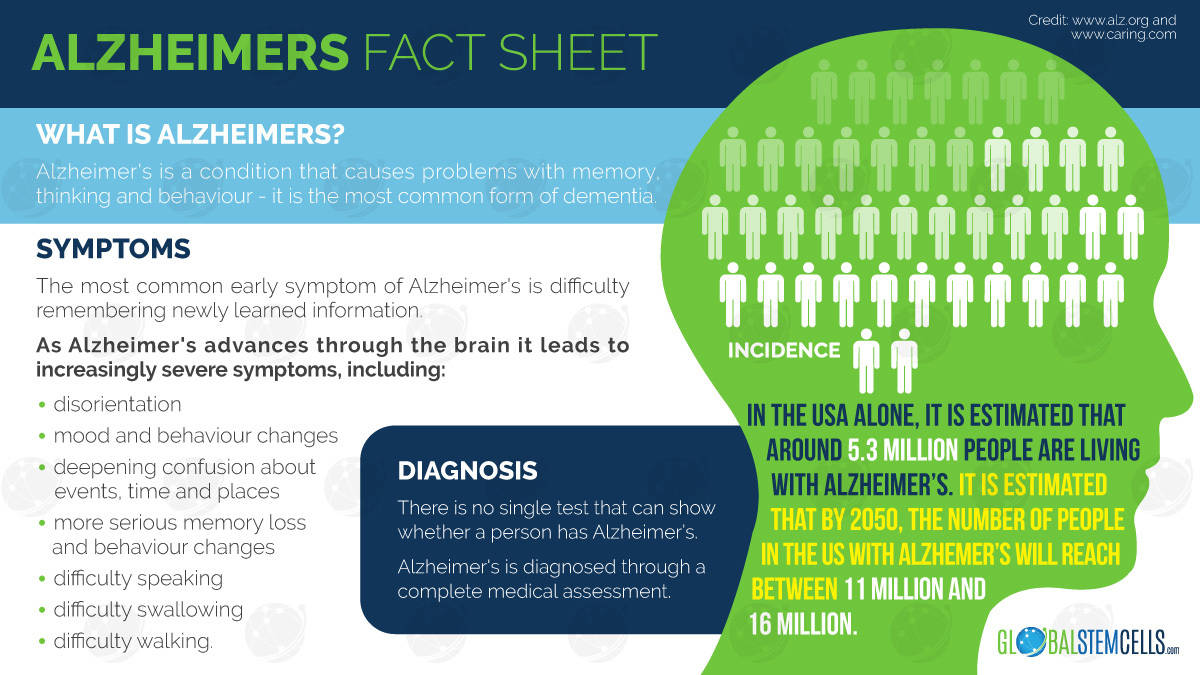If someone you know had Alzheimer’s, would you be able to recognise it?
Alzheimer’s is a type of Dementia that causes problems with memory, thinking and behaviour. Symptoms usually develop slowly and get worse over time, becoming severe enough to interfere with everyday tasks.
Alzheimer’s is the most common form of Dementia, a general term for memory loss and other cognitive abilities serious enough to interfere with daily life. Alzheimer’s disease accounts for 60 to 80 percent of dementia cases.
Typical Signs of Alzheimer’s Disease
For a long time, memory loss and cognitive decline have been thought to be early signs that a person had developed Alzheimer’s. Some of the other signs are:
- Difficulty performing familiar tasks
- Confusion about time and place
- Problems with language
- Poor or decreased judgment
- Problems misplacing things

A recently commissioned study has found that an even earlier sign could be the decline of the level of glucose in the brain.
Even much more outstanding is the fact that this team believes that they have discovered a way to stop these glucose levels from falling. This study explains that this discovery could potentially prevent Alzheimer’s disease from developing.
Alzheimer’s Research
A study published online in the journal Translational Psychiatry has reliably shown that the declining levels of glucose in the brain is a direct cause for the cognitive impairments associated with the disease. This may explain why diabetes is a known risk factor for dementia, as someone who suffers from it experiences a condition where glucose cannot enter the brain cells.
Lead researcher Dr. Domenico Praticò in a statement says, “The findings are very exciting”, and that “There is now a lot of evidence to suggest that p38 is involved in the development of Alzheimer’s disease.”
According to the study, a protein known as p38 may be able to prevent this deprivation from occurring.
This protein is a possible candidate growth of a drug to prevent the onset of cognitive decline caused by low glucose levels. P38 is naturally made in the body as a response to glucose deprivation.
To test this theory, a team of researchers used mice as a specimen. The team of researchers purposely deprived the brains of mice of glucose in order to observe the result. They used two sets of mice, one set was intentionally deprived of glucose in the brains. These mice showed signs of decline to suggest that neural communication pathways in their brains had broken down. The glucose-deprived mice performed significantly worse than the other set of mice that were controlled in maze memory tests. These mice also displayed high levels of phosphorylated tau and dramatically increased amounts of cell death in the brains, two other well-known indications of Alzheimer’s onset.
Future research will further investigate p38’s role in memory impairments.
Scientists around the world are doing research with the aim of finding a solution that will make Alzheimer’s a disease of the past.
There have been a number of breakthroughs in this effort. A group of scientists from Flinders University in Adelaide Australia in partnership with a research team at the Institute of Molecular Medicine, and University of California, Irvine released their efforts on creating a drug that could prevent brain protein buildup, the main hallmark of the disease.
According to this research, these findings could lead to a vaccine against Alzheimer’s in as little as five years.




 English
English